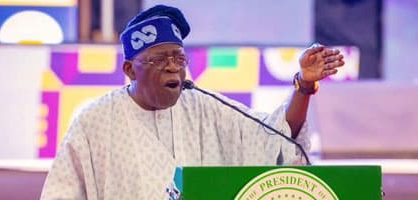The special adviser to President Bola Tinubu on Information and Strategy, Bayo Onanuga, has asserted that Nigeria’s current inflation rate of 33.69% is not as severe as it appears and that economic conditions are gradually improving. Onanuga made these remarks during an interview with Television Continental (TVC) on Monday, addressing widespread concerns over rising inflation.
Onanuga emphasized that the month-to-month increase in inflation from April to May 2024 was a modest 0.26%, rising from 33.43% to 33.69%. He argued that this marginal rise indicates a deceleration in inflation, suggesting that citizens will soon feel the benefits of the government’s economic reforms.
“I read a report recently saying inflation has moved to a staggering 33.69%. How is it staggering? Last month in April, inflation was 33.43%. Then it moved by a mere 0.26%. In fact, from March to April, inflation slowed down. So things are improving. People will soon begin to feel the impact of all these reductions,” Onanuga stated.
Contrary to reports from various news outlets, Onanuga claimed that food prices have been relatively dropping and will continue to decline nationwide. He cited a personal anecdote of receiving news about a decrease in the price of garri as evidence of this trend.
Onanuga also noted that President Tinubu inherited many of the economic challenges currently facing the country, including a high inflation rate that was already above 23% when Tinubu took office. He highlighted the administration’s efforts to tackle these issues, including the introduction of a student loan scheme aimed at supporting higher education and alleviating financial pressures on families.
“This government, when it came in May last year, inflation was at 23.65%. The movement from there till now is about 10.4%. We already had some problems before this government came into office. We didn’t create all the problems. We inherited many of them. And this government is making so much effort to reduce these problems,” Onanuga explained.
Despite the administration’s optimistic outlook, Nigeria is experiencing significant economic difficulties. According to the National Bureau of Statistics (NBS), the inflation rate rose to 33.95% in May 2024, up from 33.69% in April. This increase marks a 0.26 percentage point rise, with year-on-year inflation rates jumping by 11.54 percentage points from 22.41% in May 2023.
Food inflation has reached 40.66% year-on-year, a substantial rise from 24.82% in May 2023. This sharp increase in food prices has been attributed to factors such as insecurity, limited funding for farmers, and high import duties on food items.
While the presidency maintains that the inflation rate is not as severe as it might seem and that economic conditions are improving, the substantial year-on-year increases in both overall and food inflation indicate significant ongoing challenges. The government’s efforts, including economic reforms and initiatives such as the student loan scheme, aim to address these issues and provide relief to Nigerian citizens. However, the effectiveness of these measures will become clearer over time as they continue to be implemented and take effect.













